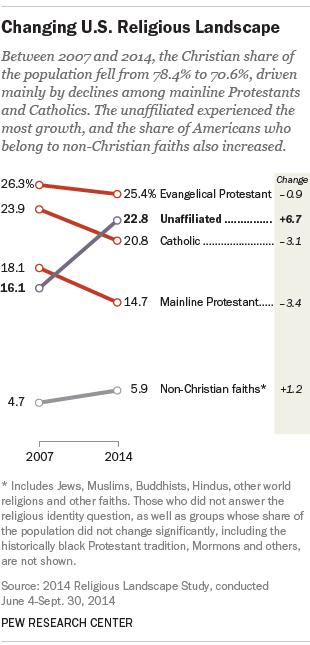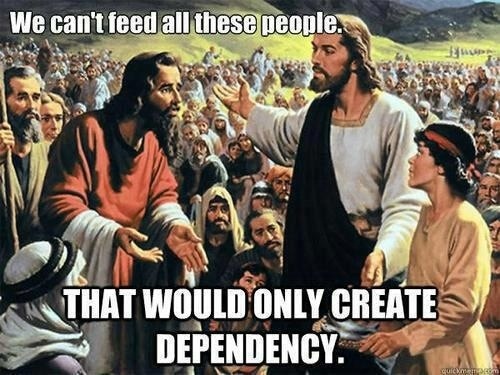Skwim
Veteran Member
I don't see evangelicalism doing much of anything except making noise. It's their métier. According to the graphic here, it comprises only about a quarter of all faiths and like all the categories except for one, is declining in membership percentage, although rather insignificantly.

So, I don't see evangelicals destroying Christian morality at all. Christian morality, specifically where it concerns LGBT and abortion rights is making a huge 180, and, IMO, for the better.
.
.

Personally, I don't believe anti-choice, anti-LGBT rights, anti-evolution, anti-climate change, are representative of core Christian values. I know the Lutheran church, the United Church of Christ, and the Episcopal church are now marrying homosexuals, and the United Methodist Church is seriously considering doing the same. Plus, a host of denominations now affirm LGBT rights. The Presbyterian Church, Unitarian Universalists, United Church of Christ, and both Conservative and Reform Judaism support abortion rights with few or no limits. (The Episcopal Church, Evangelical Lutheran Church and Methodist Church all support abortion rights, but with some limits.) As for evolution, the United Church of Christ, United Methodist Church, Presbyterian Church, Judaism, Catholicism all accept evolution; moreover, 50% of the American population accepts it. So if anything, the core Christian values regarding these issues has shifted considerably.Sunstone said:So many people these days find that they disagree with what passes for core Christian values now -- anti-choice, anti-LGBT rights, anti-evolution, anti-climate change, pro prosperity gospel, and even willing to condone such evils as racism, sexism, sexual molestation, wealth inequality, and so forth if it is politically expedient to do so.
So, I don't see evangelicals destroying Christian morality at all. Christian morality, specifically where it concerns LGBT and abortion rights is making a huge 180, and, IMO, for the better.
.
.
Last edited:


 Backward, racist sexist weirdos end up running these mega-churches. WEIRD!!!
Backward, racist sexist weirdos end up running these mega-churches. WEIRD!!!